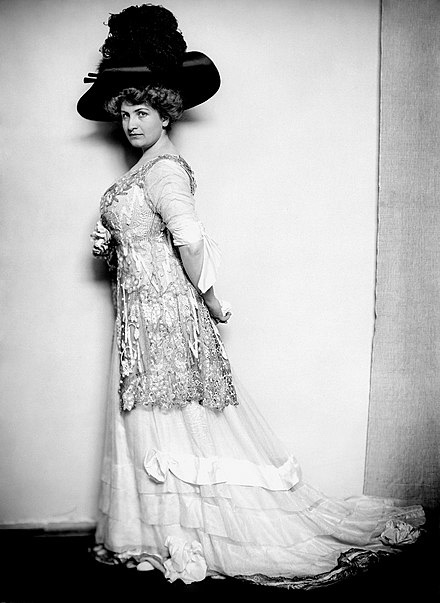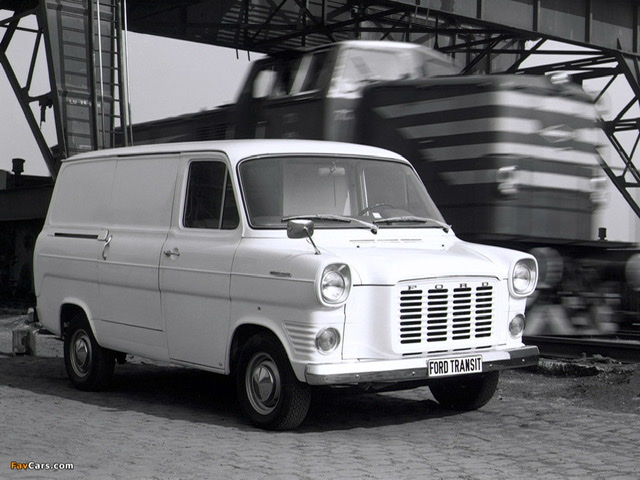You are using an out of date browser. It may not display this or other websites correctly.
You should upgrade or use an alternative browser.
You should upgrade or use an alternative browser.
People you’ve known or met who could remember furthest back in history.
- Thread starter TheDecameron
- Start date
Frizzy
Liberal anarchist
My great grandfather was a well known clergyman and poet in Glasgow, told me his proudest day was shaking Lloyd George’s hand. He was also at a old firm match where he gave a scripture reading to a hail of Celtic fans bottles( he was a proddy), crowd was supposedly over 100,000. Old firm record 120,000.
Love this stuff, grandpas family had a camera very early, very expensive, and the pics of them in Victorian swimming costumes in loch Loman are joyous. Faves tho are my grandparents photos from when they did the grand tour of the med on a steamer, mid thirties and are so evocative of the pre war glamour.
Love this stuff, grandpas family had a camera very early, very expensive, and the pics of them in Victorian swimming costumes in loch Loman are joyous. Faves tho are my grandparents photos from when they did the grand tour of the med on a steamer, mid thirties and are so evocative of the pre war glamour.
Last edited:
Rockmeister
pfm Member
Grandad Mildred. I've written down all i can remember of his story, but here's a bit...
Born the son of a Norfolk farmer in 1879, joined the army in 98, fought through the Boer war (decorated for bravery after a leopard attacked him on his way to battle as lead rider of an artillery gun team. it took his eye out, so they stitched him up and told him to get on with it), was sent to India and then fought through WW1. married my Grandma (an Irish gypsy girl he met on a break working as a veggie picker on his dad's farm) had 3 daughters all of whom he and grandma determined to educate 'properly' (very very rare in the 20's and all 3 had amazing lives). He lived with us for last 2 years of his life. He loved to smoke a pipe, eat and play poker. I loved him and would sit with him in the porch, blanket on his knee while he spun tall stories of the world he'd seen. It was he who inspired me to go travel and see the world. He died at 96. 'Never been ill in my life'.
Born the son of a Norfolk farmer in 1879, joined the army in 98, fought through the Boer war (decorated for bravery after a leopard attacked him on his way to battle as lead rider of an artillery gun team. it took his eye out, so they stitched him up and told him to get on with it), was sent to India and then fought through WW1. married my Grandma (an Irish gypsy girl he met on a break working as a veggie picker on his dad's farm) had 3 daughters all of whom he and grandma determined to educate 'properly' (very very rare in the 20's and all 3 had amazing lives). He lived with us for last 2 years of his life. He loved to smoke a pipe, eat and play poker. I loved him and would sit with him in the porch, blanket on his knee while he spun tall stories of the world he'd seen. It was he who inspired me to go travel and see the world. He died at 96. 'Never been ill in my life'.
TheDecameron
Unicorns fart glitter.
Bruno Walter, Mahler's assistant conductor in the late 19th century in Hamburg, was still conducting and recording in the late 50s/early 60s. There can't be that many conductors of the 2nd half of the 20th C. with such a direct connection to Mahler.
The building

The architect

and his mistress

gary1064
pfm Member
My maternal grandfather "Norm" was born in 1906, one of 14 children. He told me that one of his earliest memories was the sinking of the Titanic, he would have been six at the time. At fourteen he left school and joined the GPO (which later became BT) as a "boy runner". He retired from BT aged 65 having worked his entire life for the same organisation, does that even happen now? He was too young for WW1 and too old for WW2, but was in a reserved occupation in any case. He was responsible for telephone line installation at RAF airbases during the Battle of Britain, they'd install the lines one day, the Luftwaffe would come and bomb them, and he'd have to go back the next day to repair! He watched the dogfights in the skies over Kent. He took my then 8 year old Mum on his shoulders to Trafalgar Sq and the Mall on VE Day, which she remembers well. Also memories of V1s flying over their house in Woodford and praying the engine wouldn't cut out.
"Uncle Stan" was a submariner and was depth charged during the war. The lead-acid batteries leaked and produced chlorine gas, but he survived. For the rest of his life he received a disability pension from the Navy, not that he seemed to suffer in any way. I remember at family gatherings he always arrived with a different lady, he was a real character. I miss them both.
"Uncle Stan" was a submariner and was depth charged during the war. The lead-acid batteries leaked and produced chlorine gas, but he survived. For the rest of his life he received a disability pension from the Navy, not that he seemed to suffer in any way. I remember at family gatherings he always arrived with a different lady, he was a real character. I miss them both.
Mullardman
Moderately extreme...
The oldest person I recall knowing was my paternal great grandmother Alice, born around 1878. (She is described as 23 years old in the 1901 census) The only place I ever saw her was sitting in the same chair in the living quarters of the pub kept by my Grandfather... her only son. This would be at a few consecutive Christmases in the 1950s, when I was under 10 and she would be in her 80s. She said little, and was quite a diminutive, though scary figure..in typical all black Victorian clothes and button boots. She had one of those silver chain purses which contained a seemingly inexhaustible supply of silver 'threepenny bits', which she distributed to us. Her husband, my Paternal Great Grandfather John,, was long gone and I never knew him, though my middle name is 'after' him.
On my Maternal side, a cousin has traced back to the 18thC and recorded stuff I was previously totally clueless about, but in keeping with the thread, the oldest one I knew, was my Grandfather Jack, born 1897, who died in 1969 aged 74. He fought in WW1 ( Driver/Lance Bombardier -Royal Artillery) and was awarded the Military Medal and mentioned in dispatches. He was 5'4" dripping wet.
There's a pic of him somewhere on here in the Photo section, which I'll try to link to later.
Edit: He's here : https://pinkfishmedia.net/forum/threads/photographs-from-the-archives.41708/page-6#post-664044
He was my Hero in many ways. A quiet spoken man, with a tremendous sense of duty, but not a trace of 'militarism' or jingoism. He was patient and wise. Although I never met him, Jack's father John, born 1858, gains a mention in a newspaper article from 1909, which I have transcribed here :
Intriguing that the case was adjourned.. so that there is very probably further information somewhere concerning the final verdict. 'Misadventure' wouldn't surprise me.. though it seems very unlikely that young Fred and his mysterious friend spent the previous evening totally unseen by anyone.
It's also interesting to me that the street on which young Fred Cuthbert lived..still exists, though with newer housing. His most direct route from where he had allegedly been for the evening, back to his house, would be straight across the railway crossing.with no need to stray along the track to where he was found.
Most odd.
On my Maternal side, a cousin has traced back to the 18thC and recorded stuff I was previously totally clueless about, but in keeping with the thread, the oldest one I knew, was my Grandfather Jack, born 1897, who died in 1969 aged 74. He fought in WW1 ( Driver/Lance Bombardier -Royal Artillery) and was awarded the Military Medal and mentioned in dispatches. He was 5'4" dripping wet.
There's a pic of him somewhere on here in the Photo section, which I'll try to link to later.
Edit: He's here : https://pinkfishmedia.net/forum/threads/photographs-from-the-archives.41708/page-6#post-664044
He was my Hero in many ways. A quiet spoken man, with a tremendous sense of duty, but not a trace of 'militarism' or jingoism. He was patient and wise. Although I never met him, Jack's father John, born 1858, gains a mention in a newspaper article from 1909, which I have transcribed here :
Quotefrom the Derby Daily Telegraph. 1909.
Midland Railway Mystery.
The Inquest Adjourned.
The coroner’s enquiry into the circumstances of the shocking fatality on the Midland Railway near Bobber’s Mill crossing was opened at Hyson Green Police Station on Wednesday evening by Mr C.L. Rothera. The deceased was a youth of 17 years named Fred Cuthbert, of 72 Randall street, whose body was discovered on the line early on Tuesday morning, the legs having been severed from the body by a passing train. The proceedings were watched by Inspector A.S. Knibbs on behalf of the railway company.
Sarah Ann Cuthbert, mother of the deceased, said her son was a chemist’s assistant employed by Mr Cundy, of Shakespeare street. He had worked there for a year and was in no business trouble, having borne a very good character. Deceased was on good terms with those at home, but he generally went out in the evening with a friend who lived at Aspley, or somewhere in that district. Witness did not know the young man and had been unable to trace him. Deceased had not been in the habit of reading pernicious literature and was of a cheerful, though quiet disposition. Witnesses knew of absolutely nothing likely to induce him to take his own life.. He went out on Monday evening and was not seen again alive.
Edward Barker, a Midland engine driver, said he was in charge of the 5:30 train from Nottingham to Cresswell on Tuesday morning and as he was approaching the Bobber’s Mill crossing he met a train coming in the opposite direction and the driver signalled to him that he had noticed a body lying on the rails upon which witnesses train was proceeding. Witness stopped his own train immediately and on investigating matters saw that the body of the deceased was lying on the track some distance ahead. The legs had been cut clean off near the trunk by a previous train, and witness saw that the rails were clean and free from bloodstains, indicating that several trains had passed over them in the darkness. Witness informed the signalman at the crossing box, and passed on with his train.
John Whyman, the signalman, spoke to visiting the body and finding the trunk lying between the metals and the legs outside. The corpse was quite cold. Between ten o’clock and six in the morning seven trains passed on the metals across which the body lay. There was no path or crossing near the spot and to reach it from the road he would have to climb a fence.
Replying to the Foreman, witness said he had occasionally seen people cross the metals.
The Coroner said there was at present no more evidence to call, but he certainly did not like to leave the case in such an incomplete state. It seemed very strange that a young fellow of good repute should be found in so remarkable a position and in such a condition. Mr Rothera certainly thought it worthwhile to make further enquiries and suggested an adjournment.
Intriguing that the case was adjourned.. so that there is very probably further information somewhere concerning the final verdict. 'Misadventure' wouldn't surprise me.. though it seems very unlikely that young Fred and his mysterious friend spent the previous evening totally unseen by anyone.
It's also interesting to me that the street on which young Fred Cuthbert lived..still exists, though with newer housing. His most direct route from where he had allegedly been for the evening, back to his house, would be straight across the railway crossing.with no need to stray along the track to where he was found.
Most odd.
TheDecameron
Unicorns fart glitter.
It’s amazing the Transit has been with us for over half a century now,

here’s a white example

here’s a white example
Barrymagrec
pfm Member
It’s amazing the Transit has been with us for over half a century now,

here’s a white example
I drove to India and back in one of those (well, the petrol version) - it would have been half a century old next year.... It was only 5 years old at the time though.
davidsrsb
pfm Member
The ones in service now are all the B-52H, from the early 60s, so just 60 years oldThe B-52 bomber, still the US heavy bomber of choice made its first flight in April 1952.
Almost 70 years ago.
RR have just won the contract to re engine the entire fleet.
cctaylor
pfm Member
And the Transit was a Mk1!
Diesel version with the Perkins 4/108 engine. The V4s had a flat front. The first of them were blessed with a very soft friction material in the clutch plate. We had some as milk floats and couldn't keep them in clutches initially.
My grandfather who started the dairy business was born in the 1890s. His deafness and poor eyesight made him unfit for military service so he avoided the horrors of WW 1. A formidable man and successful businessman however. He started his retail dairy business on the first of January 1931, a tough time for any business. Our family ran the dairy until 1995, changing market conditions made selling out a wise move, I think he would have approved.
I had great grand parents who were born around 1900 so too young for WW1 & too old for WW2. My grandad on fathers side lied about his age to join up in the navy for WW2, saw some terrible things but lived a good life until he was 95. He ran his own business for many years, served as a magistrate & councillor. In the end he received the Legion D’honour from France for his time in the navy, a great man who I miss daily.
Compared to him I’ve done bugger all.
Compared to him I’ve done bugger all.
This surprises many.
My parents were born in the very early years of the 20th century and the internal combustion engine was a rare thing indeed - it wasn't as common as many would think when I grew up through the 60's. My parents remembered steam when it was the only power. - when steam rollers were exactly that, when two steam engines ploughed fields by running steel cables from one side of a field to the other, and dragging the plough that way, when threshing engines turned-up during the winter to thresh the wheat that was in stooks and stacks.
My parents were born in the very early years of the 20th century and the internal combustion engine was a rare thing indeed - it wasn't as common as many would think when I grew up through the 60's. My parents remembered steam when it was the only power. - when steam rollers were exactly that, when two steam engines ploughed fields by running steel cables from one side of a field to the other, and dragging the plough that way, when threshing engines turned-up during the winter to thresh the wheat that was in stooks and stacks.
Joe Hutch
Mate of the bloke
My maternal grandmother was the only grandparent who survived long enough for me to know her. Having lost her husband, a daughter and a son in the space of a couple of years, she wore only black clothes.
She was born into a Protestant family, but married an Irish Catholic, and was promptly disowned by her father. Not only that, she and her husband were driven out of the neighbourhood by sectarian violence.
Coincidentally, my father was also born into a Protestant family, married an Irish Catholic and was disowned by his father.
She was born into a Protestant family, but married an Irish Catholic, and was promptly disowned by her father. Not only that, she and her husband were driven out of the neighbourhood by sectarian violence.
Coincidentally, my father was also born into a Protestant family, married an Irish Catholic and was disowned by his father.
martin clark
pinko bodger
Ah yes:The building

The architect

and his mistress

….and in the btl comments:
"God knows how many between" - Alexander Zemlinsky (composer) - Gustav Klimt (painter) (Granted, they were before Mahler) - Oskar Kokoschka (painter) - Franz Schreker (composer) - Joseph Fraenkel (doctor) - Paul Kammerer (biologist) - (Possibly) Lili Leiser (socialite) - Johannes Hollnsteiner (priest) ...And those are just the ones I'm aware of.”

